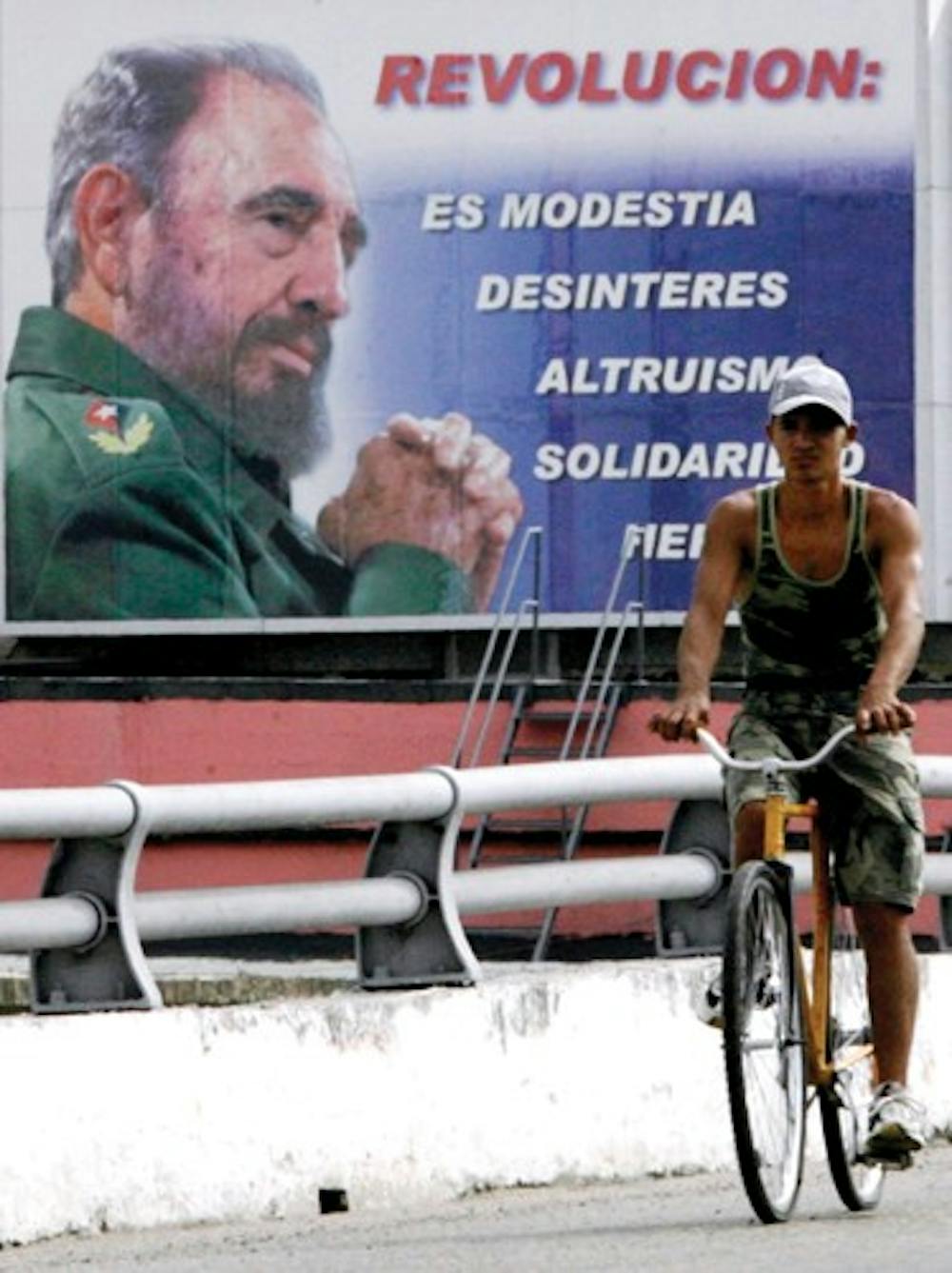With the resignation of Cuban President Fidel Castro and the end of his 49-year-old regime, IU students and faculty members spoke about the 81-year-old leader with mixed reactions.\nJeff Gould, director of the Center for Latin American and Caribbean Studies, said Castro’s resignation was not unexpected because of the leader’s illness for the past year and a half.\nWhat the resignation does do, he said, is raise questions about the transitions in Cuba in the coming months.\n“There are probably two factors which are important to determining the future of Cuba,” he said. “The policy of the U.S. and recognition that to some degree Cuban nationalism, which remains a potent force, is, to some degree, connected to history of Cuban revolution.”\nA looming danger, Gould said, is that U.S. policy regarding Cuba remains roughly the same as it has been since 1959.\n“The U.S. has played a role which has tended to consolidate the impact of the revolution and communist regime rather than playing productive role,” Gould said of U.S. foreign policy in Cuba. “Now will be the time for U.S. to re-evaluate what they’ve been doing and to take into account its own mistakes.”\nGould said the chance of the Bush administration lifting the 1962 embargo on Cuba, which bans economic, commercial and financial transactions with the U.S., is very slim.\n“The embargo has been and continues to be counterproductive,” he said. “For it to be lifted while Raul Castro is president would require an act of Congress and support of the president, which just won’t happen this year.”\nJunior Andres Morera said he is not optimistic about the regime’s shift in Cuba, especially since Raul Castro has been acting as president for more than a year and nothing has changed since the temporary turnover of power.\n“This is a time for Castro to swallow his pride for the people of Cuba and make wise decisions,” Morera said. “Same for the U.S. Both countries need to swallow their pride and make amends with each other.”\nMorera, whose grandparents and father emigrated from Cuba when his father was 12, said he is very confident, however, in the Cuban people’s self-sufficiency and survival abilities. He said he hopes Cuba will cooperate with Spain and Latin America to build a more capitalist economy and that the U.S. removes the embargo on basic resources. \n“I hope, though, that Cuban-Americans don’t feel like they have the right to get involved with anything that goes on over there,” he said. “When my grandpa left, he abandoned his homeland and any right to become involved with politics. He gave up on the fight.”\nArlene Diaz, acting director of the Latino Studies program, said although Castro has finally stepped down, abrupt changes in Cuban policy should not be expected.\n“Fidel has always been very careful,” she said. “Here we are, expecting him to die and for changes to come, and then (he resigns), which shows us that he’s crafted this transition carefully.”\nDiaz, who teaches a course on Cuban history, said in Castro’s Cuba, there was a lot of need, but his achievements in health care and education are “undebatable.”\n“He’s careful in drawing a transition that is not going to be an abrupt change in Cuba,” she said. “This change will be more timely, more aced and more controllable.”\nBut regardless of the regime change, Diaz said Castro’s status as a revolutionary leader would not minimize the amount of admiration that some Cubans still hold for him.\n“There’s a lot of respect for Fidel, and people are fearful that if you implement something that may be seen as a huge change, you are going against Fidel,” Diaz said. “He has a lot of political baggage attached, so we just have to wait and see what will happen.”
Students, faculty react to Castro’s resignation

Get stories like this in your inbox
Subscribe





